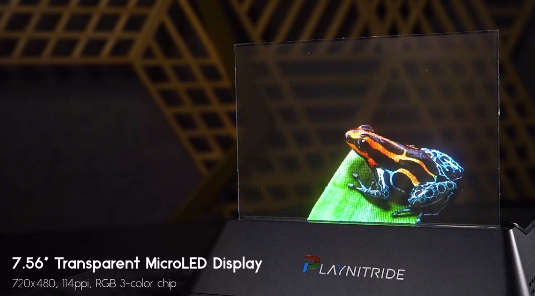In the second half of 2020, increasing applications based on novel display technologies are emerging in the market. Mini LED backlight technology has reached the stage of commercialization with several notebook and monitor products launched. Chinese TV brands TCL have released its Mini LED TV series and Korean giants Samsung and LG are likely to roll out Mini LED backlight TVs in the near future as well. And of course, the most expected Mini LED product would be the 12.9 iPad Pro of Apple.
Meanwhile, Micro LED technology is still developing and a few breakthroughs have been demonstrated at the virtual Display Week event held last week including flexible Micro LED displays for wearable applications and automotive Micro LED displays.

(Image: screenshot from PlayNitride video)
Look into the supply chain and technology suppliers of these Mini LED backlit products and Micro LED display prototypes, we can find that Taiwanese companies, including chip makers, technology developers and other technology providers, play critical roles. Take Apple’s 12.9-inch Mini LED iPad Pro for example, the supply chain include several Taiwan-based companies especially for the section of Mini LED chip process.
Comparing to the competitors from other areas, what are the strength of Taiwanese players in the development of Micro/Mini LED technologies?
Roger Chu, Analyst of TrendForce, indicated that despite Taiwan-based chip makers may not compete with Chinese manufacturers in price, their technology patents are more comprehensive. For big brands such as Apple, patents and quality would be valued more instead of price.
As for Micro LED, Taiwanese manufacturers currently have more advanced technology in producing micron size chips as they started the development earlier. In addition, Taiwan has a very mature semiconductor ecosystem which can provide advantages for Micro LED chip processing technology. Since Micro LED chips are very small, the existing LED equipment can hardly support the manufacture process. But for semiconductor tools, processing chips under 75 µm is not a problem. Thus, the ecosystem of semiconductor industry in Taiwan could be a great support for Micro LED technology development.












